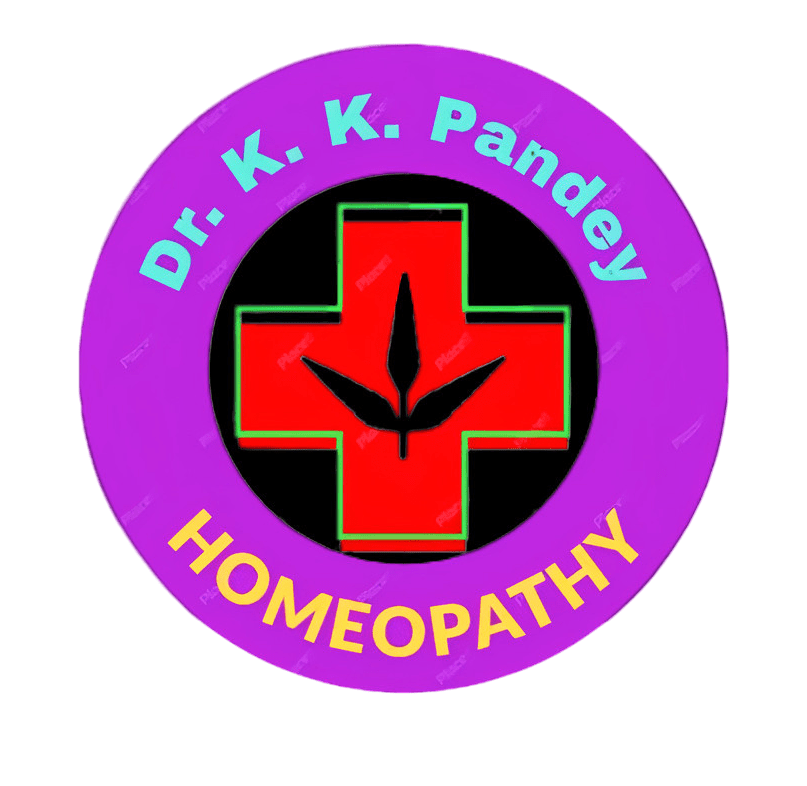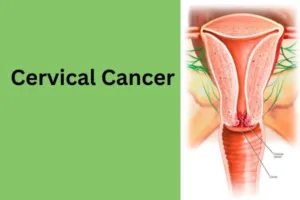1. Introduction to Cervical Cancer
– Definition and overview
– Prevalence and incidence rates
2. Causes and Risk Factors
– Human papillomavirus (HPV) infection
– Smoking
– Weak immune system
– Sexual history
3. Symptoms and Early Detection
– Abnormal vaginal bleeding
– Pelvic pain
– Pain during intercourse
– Screening methods: Pap smear and HPV testing
4. Stages of Cervical Cancer
– Stage 0: Carcinoma in situ
– Stage I: Early stage cancer
– Stage II: Locally advanced cancer
– Stage III: Advanced cancer
– Stage IV: Metastatic cancer
5. Treatment Options
– Surgery
– Radiation therapy
– Chemotherapy
– Targeted therapy
6. Prevention and HPV Vaccination
– Importance of vaccination
– Vaccination guidelines
7. Coping and Support
– Emotional impact of diagnosis
– Support groups and resources
8. Research and Future Directions
– Advances in treatment options
– Emerging therapies and clinical trials
9. Conclusion
Cervical Cancer: Understanding, Prevention, and Treatment
Table of Contents
- 1 Cervical Cancer: Understanding, Prevention, and Treatment
- 2 Introduction to Cervical Cancer
- 3 Causes and Risk Factors
- 4 Symptoms and Early Detection (Cervical Cancer Symptoms Reddit)
- 5 Stages of Cervical Cancer
- 6 Treatment Options
- 7 Homeopathic Remedies for Cervical Cancer
- 8 Benefits of Homeopathic Treatment
- 9 Diet
- 10 Prevention and HPV Vaccination
- 11 Coping and Support
- 12 Research and Future Directions
- 13 Conclusion
- 14 FAQs (Frequently Asked Questions)
Cervical cancer is a significant health concern worldwide, affecting thousands of women each year. It is a type of cancer that develops in the cervix, the lower part of the uterus that connects to the vagina. This article aims to provide comprehensive information about cervical cancer, including its causes, symptoms, stages, treatment options, prevention strategies, and ongoing research.
Introduction to Cervical Cancer
Cervical cancer arises when abnormal cells in the cervix grow out of control. The primary cause of cervical cancer is the human papillomavirus (HPV), a common sexually transmitted infection. While most HPV infections resolve on their own, persistent infection with high-risk HPV strains can lead to the development of cervical cancer.
Causes and Risk Factors
Several factors can increase the risk of developing cervical cancer, including HPV infection, smoking, a weakened immune system, and a history of multiple sexual partners or sexually transmitted infections. Women with a family history of cervical cancer may also be at higher risk.
Symptoms and Early Detection (Cervical Cancer Symptoms Reddit)
In the early stages, cervical cancer may not cause noticeable symptoms. However, as the disease progresses, symptoms may include abnormal vaginal bleeding, pelvic pain, pain during intercourse, and unusual vaginal discharge. Regular screening tests, such as Pap smears and HPV testing, are essential for early detection and treatment.
Stages of Cervical Cancer
Cervical cancer is staged based on the extent of the disease. Stage 0 refers to carcinoma in situ, where abnormal cells are confined to the surface of the cervix. As the cancer progresses, it may advance to stages I, II, III, and IV, with increasing severity and spread to nearby tissues or organs.
Treatment Options
The treatment approach for cervical cancer depends on the stage of the disease and other individual factors. Treatment may include surgery to remove the cancerous tissue, radiation therapy to target cancer cells, chemotherapy to destroy cancer cells throughout the body, or targeted therapy to attack specific molecules involved in cancer growth.
Homeopathic Remedies for Cervical Cancer
In homeopathy, treatment is tailored to the individual’s specific symptoms, constitution, and overall health. While there are no specific homeopathic remedies for cervical cancer itself, homeopaths may prescribe remedies to alleviate symptoms, improve overall well-being, and support the body’s ability to fight the disease. Some commonly used homeopathic remedies for cervical cancer symptoms may include:
1. Carcinosinum (Cancer Nosode)
– Key Symptoms: Strong family history of cancer, anxiety, restlessness, perfectionism, sensitivity to reprimands, craving for sweets, and tendency to suppress emotions.
– Indications: Constitutional remedy for individuals with a predisposition to cancer, especially those with a history of familial cancers.
2. Thuja Occidentalis (Arborvitae)
– Key Symptoms: Warts or growths on the genitalia, history of sexually transmitted infections, feeling of being controlled by external influences, tendency to hold grudges, and emotional sensitivity.
– Indications: Cervical dysplasia, genital warts, suppressed sexual history, and individuals with a weakened immune system.
3. Hydrastis Canadensis (Goldenseal)
– Key Symptoms: Weakness, debility, yellowish discharge from mucous membranes, foul-smelling discharges, chronic catarrhal conditions, and aversion to cold air.
– Indications: Cervical cancer with offensive-smelling discharges, ulceration, and chronic inflammation of mucous membranes.
4. Conium Maculatum (Poison Hemlock)
– Key Symptoms: Hard, enlarged cervical glands, stiffness of muscles and joints, difficulty in initiating movement, anxiety about health, and fear of cancer.
– Indications: Cervical tumors, induration, and nodularity of the cervix, especially in women with a history of suppressed sexual activity.
5. Phytolacca Decandra (Poke Root)
– Key Symptoms: Hard, enlarged lymph nodes, shooting pains radiating from the affected area, soreness and tenderness of breasts, aversion to touch, and irritability.
– Indications: Cervical lymphadenopathy, mastitis, and breast complaints associated with cervical cancer.
6. Lachesis Mutus (Bushmaster Snake Venom)
– Key Symptoms: Left-sided symptoms, heat intolerance, aggravation from tight clothing, suspicion, jealousy, loquacity, and fear of being confined.
– Indications: Cervical cancer with left-sided symptoms, hemorrhagic tendencies, and emotional issues related to jealousy and suspicion.
7. Aurum Metallicum (Metallic Gold)
– Key Symptoms: Depression, feelings of worthlessness, self-condemnation, intense pain and pressure in the pelvis, tendency to dwell on past failures, and desire for solitude.
– Indications: Cervical cancer with deep-seated depression, suicidal thoughts, and a sense of hopelessness.
8. Bellis Perennis (Daisy)
– Key Symptoms: Bruised sensation, soreness, and stiffness, tendency to overexert, abdominal bloating and distension, and feeling of being unappreciated.
– Indications: Cervical cancer with abdominal and pelvic soreness, especially after surgery or trauma.
9. Kali Carbonicum (Potassium Carbonate)
– Key Symptoms: Weakness, fatigue, backache, dragging sensation in the pelvis, anxiety about health, and craving for salty foods.
– Indications: Cervical cancer with weakness and fatigue, especially in women with a history of prolonged stress or overwork.
10. Calcarea Fluorica (Calcium Fluoride)
– Key Symptoms: Hard, stony glands, stiffness and cracking of joints, tendency to fibrosis and scarring, anxiety about health, and fear of cancer.
– Indications: Cervical cancer with hard, nodular growths, especially in individuals prone to fibrotic changes.
These homeopathic medicines are selected based on the characteristic symptoms and constitution of the individual. It’s important to consult with a qualified homeopath for proper evaluation and individualized treatment recommendations tailored to your specific needs.
Benefits of Homeopathic Treatment
One of the main advantages of homeopathic treatment is its gentle and non-invasive nature. Homeopathic remedies are generally safe and well-tolerated, with minimal side effects. They can be used alongside conventional cancer treatments to help manage symptoms, reduce treatment-related side effects, and improve overall quality of life. Homeopathy also takes into account the emotional and psychological aspects of illness, providing holistic support to individuals with cancer.
Diet
Diet of athe patient should be totally alkaline.
Prevention and HPV Vaccination
Preventing cervical cancer begins with reducing the risk of HPV infection. Vaccination against HPV is highly effective in preventing infection with the most common cancer-causing strains of the virus. The HPV vaccine is recommended for both girls and boys starting at age 11 or 12, with catch-up vaccination available for older individuals.
Coping and Support
A diagnosis of cervical cancer can be emotionally challenging. Many women experience fear, anxiety, and uncertainty about the future. It’s essential to seek support from healthcare providers, loved ones, and support groups to cope with the emotional impact of the diagnosis and navigate treatment decisions.
Research and Future Directions
Ongoing research in the field of cervical cancer aims to improve treatment outcomes, develop new therapies, and enhance screening methods. Advances in immunotherapy, targeted therapy, and precision medicine offer promising avenues for the future of cervical cancer treatment.
Conclusion
Cervical cancer is a preventable and treatable disease, especially when detected early through regular screening and vaccination against HPV. By raising awareness, promoting screening guidelines, and supporting research efforts, we can continue to make strides in reducing the burden of cervical cancer and improving outcomes for affected individuals.
FAQs (Frequently Asked Questions)
1. What is the main cause of cervical cancer?
– The primary cause of cervical cancer is infection with the human papillomavirus (HPV), particularly high-risk strains.
2. At what age should I start getting screened for cervical cancer?
– Screening guidelines recommend starting Pap smears at age 21, regardless of sexual activity, and HPV testing starting at age 30.
3. Is cervical cancer preventable?
– Yes, cervical cancer is largely preventable through HPV vaccination and regular screening tests.
4. What are the treatment options for cervical cancer?
– Treatment options may include surgery, radiation therapy, chemotherapy, and targeted therapy, either alone or in combination.
5. How effective is the HPV vaccine in preventing cervical cancer?
– The HPV vaccine is highly effective in preventing infection with the most common cancer-causing strains of the virus and reducing the risk of cervical cancer.





